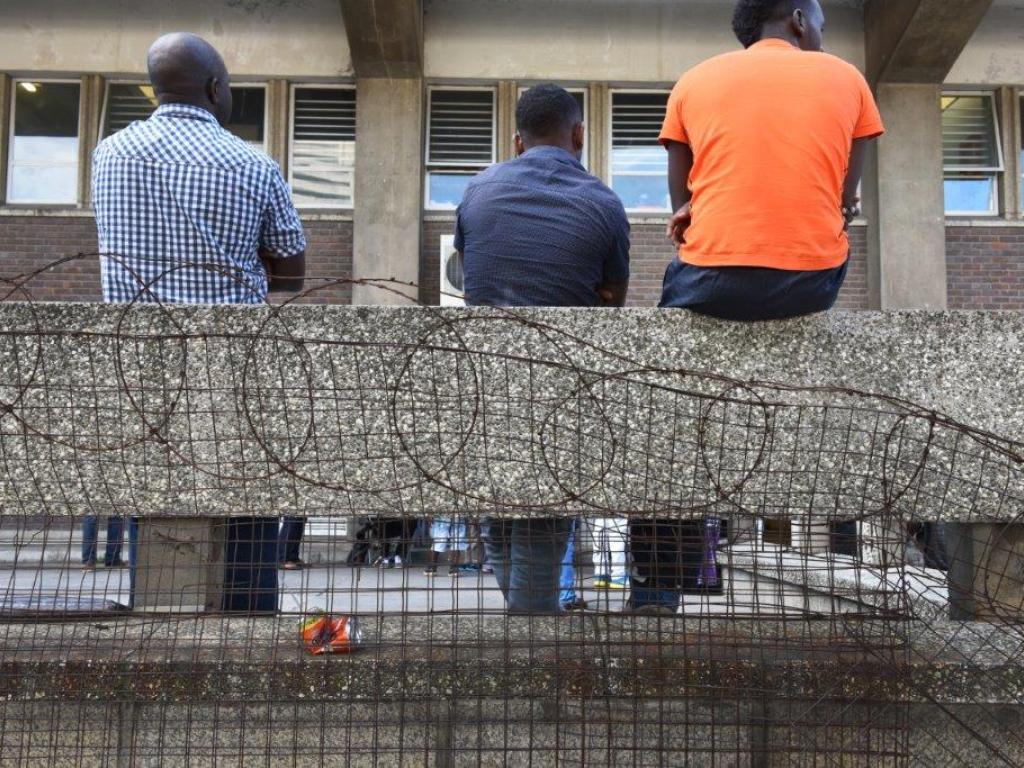Government contributes to proliferation of 'hidden' migrants

The Refugee Rights Unit recently presented a paper on Hidden, Irregular and Forced Migration at a conference on migration organised by the Worldwide Universities Network (WUN) at Maastricht University in the Netherlands.
Presented by Ncumisa Willie, an attorney in the unit, the paper, which she co-authored with the unit director Fatima Khan, highlighted the ways in which recent government policy shifts in the asylum process contribute to the proliferation of “hidden” and irregular migrants in South Africa. Khan and Willie argue that the South African government through restrictive and exclusionary policies has contributed to the creation of these undocumented refugees and asylum seekers. They also demonstrated that restricted access to the asylum process forced migrants, who have a prima facie refugee claim, to remain in the country without proper documentation. Through a set of interviews conducted with documented refugees and asylum seekers they found that the undue socio-economic constraints placed on documented individuals discouraged and indeed prevented them from continuing to renew their documentation and regularising their legal stay in South Africa.
The paper makes a valuable contribution to domestic policy formulation. The interviews with refugees and asylum seekers in Cape Town provide first-hand accounts of the obstacles they face in South Africa, which drive them to remain undocumented in the country. The insights gained from the research will be used to engage more constructively with the South African government in order to provide research-driven policy approaches to migration in the future. The paper was presented at one of the breakaway sessions of the WUN conference on 1 April 2016. The other sessions focussed on Labour Mobility, Health Migration and Transnational Families.
A focus on international migration
In recent years, international migration has become a central element of the global policy agenda as a result of the ongoing conflicts most notably in Syria, Somalia and Darfur, and including environmental as well as other climate-related disasters in Africa. The WUN Conference contributed to this international discussion through a multidisciplinary approach.
At European Union (EU) level, migration and asylum are currently at the forefront of the regional and global policy agenda. In 2015, more than one million migrants and refugees are estimated to have arrived by sea at Europe’s southern borders. Over 3 760 migrants have lost their lives on the dangerous journey, with another 244 deaths already recorded in January 2016 alone. The scale and speed at which migrants and refugees are arriving in Greece has uncovered policy weaknesses in migration and asylum management systems as well as in domestic and regional human rights protection mechanisms. The crisis in Europe has been exacerbated by a sluggish response from EU member states who share stark differences on how to respond. Europe’s approach has been fraught with a schizophrenic disjuncture between a humanitarian rights-based approach on the one hand and a pragmatic resource-constrained unwillingness on the other.
The WUN Conference had EU migration and asylum policy as the focus for the plenary session. Speakers included policy-makers from EU institutions and academics as well as representatives from international organisations such as labour organisations, trade unions and NGOs.
This focus on the migration crisis and the EU’s failed policy responses is but one important element of WUN’s global priorities for migration research; there are many more which also demand a global approach. The UN Development Agenda for the coming decade includes Sustainable Development Goals (SDGS), for which migration research, analysis and data will be needed. Migration research is increasingly important, for immediate policy formulation and also to reframe future approaches which should steer away from a Eurocentric approach to one framed from the perspectives of the Global South. The conference addressed the need for a global research agenda, by exploring current and ongoing research themes, as well as identifying the potential for WUN to contribute to reframing the future research agenda.
Migrants migrate for various reasons and face particular challenges in different contexts. A one-size fits all approach can have disastrous consequences. States in reality have no control over individual decisions of migrants and should not focus efforts on trying to prevent migration but rather should focus on migration management. A state-driven preoccupation with deterring or preventing migration is naïve. This way of framing the issue was the focal point for the breakout sessions of the WUN Conference.
Most active research network WUN is a leading global higher education and research network made up of 18 universities, spanning 11 countries and across five continents. Together, they work to drive international research collaboration that addresses issues of global significance.
WUN is the most active global higher education and research network with 90 active research initiatives, engaging over 2000 researchers and students collaborating on a diverse range of projects. These initiatives are committed to addressing some of the world’s most urgent challenges and are supported by prolific partners such as the United Nations Foundation, World Bank, OECD and World Health Organization.
They focus their research on four globally significant themes that drive their programmes and ignite their teamwork:
• Responding to Climate Change
• Public Health (Non-Communicable Disease)
• Global Higher Education and Research
• Understanding Cultures. Within each of these areas is a collection of high-quality collaborative research programmes involving a number of WUN member universities along with other academic institutions, governments, international agencies and foundations.